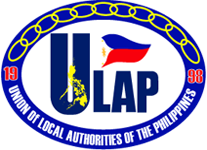 The Philippine Open Government Partnership (OGP) National Summit 2016, which was made possible with the support of USAID- Facilitating Public Investment Project (USAID-FPI) and the efforts of The International Center for Innovation, Transformation and Excellence in Governance (INCITEGov), Union of Local Authorities of the Philippines (ULAP) and the Jesse M. Robredo Institute for Governance, was held on March 3-4, 2016 at the Dusit Thani Manila Hotel. The Summit brought together approximately 200 reform and development partners from the national and local government, civil society organizations, business groups, and academic institutions. It aimed to broaden the reach of OGP and deepen the commitments, links, and work on local coalitions towards achieving open government reforms.
The Philippine Open Government Partnership (OGP) National Summit 2016, which was made possible with the support of USAID- Facilitating Public Investment Project (USAID-FPI) and the efforts of The International Center for Innovation, Transformation and Excellence in Governance (INCITEGov), Union of Local Authorities of the Philippines (ULAP) and the Jesse M. Robredo Institute for Governance, was held on March 3-4, 2016 at the Dusit Thani Manila Hotel. The Summit brought together approximately 200 reform and development partners from the national and local government, civil society organizations, business groups, and academic institutions. It aimed to broaden the reach of OGP and deepen the commitments, links, and work on local coalitions towards achieving open government reforms.
Currently, the Philippines has been strongly implementing the OGP Third Country Action Plan (2015-2017). Among the twelve (12) OGP commitments, the following clearly have expectations and implications from and to the local government stakeholders: [2] Sustain transparency in local government plans and budget: Full Disclosure Policy; [4] Attain EITI compliance: Extractive Industries Transparency Initiative ;[6] Strengthen community participation in local planning and budgeting: Bottom-Up Budgeting and National Community Driven Development Program; [8] Enhance performance benchmarks for local governance: Seal of Good Local Governance; and [10] Improve local government competitiveness: Competitiveness Index Score.
During the event, ULAP facilitated the Talakayan “Strengthening Local Governance through OGP: Learnings, Commitment and Ways Forward”. Executive Director Czarina Medina-Guce moderated the discussion with Atty. Teodoro Jose Matta of Palawan, Mayor Lourdes Panganiban of Andaganan, Isabela, and Mayor Maria Angela Garcia of Dinalupihan, Bataan as panellists. The discussion focused on OGP commitments that had the most impact on the Local Government Units (LGUs) included as panellists, and how these commitments can be enhanced or strengthened further through meaningful policy directions or policy reforms. The importance of evidence-based policy making was highlighted. The discussions also revolved around the potential role of CSOs in local governance, and how outreach in through involvement of different sectors could further enhance or strengthen OGP commitments.
Break-out Sessions for LGUs on Bottom-up Budgeting, Seal of Good Local Governance and Full Disclosure Policy, Business Competitiveness Index, and Extractive Industries were also facilitated by ULAP. The theme for the sessions was agenda-setting and consensus-building prior and after elections. The sessions aimed to enhance and strengthen performance benchmarks for local governance, full disclosure policy, business competitiveness, and transparency and accountability in extractive industries.
During the first break-out session, which covered the topic of Bottom-up Budgeting, Seal of Good Local Governance and Full Disclosure Policy, it was highlighted that improvements on the BuB and the SGLG shall be made in the coming years, and eventually shall be linked with the United Nations (UN) Sustainable Development Goals (SDGs) for 2016-2030. The speakers for the breakout session were San Remigio, Cebu Councilor Antonio Villamor, DILG Project Management Office (PMO) Richard Villacorte, DILG Bureau of Local Government Systems (BLGS) Melanie Quiton, Dinalupihan Bataan Mayor Maria Angela Garcia and Andaganan Isabela Mayor Lourdes Panganiban.
The Department of Interior and Local Government (DILG) is starting to implement the LGU Scorecard , otherwise known as “Local TARGET (Transcending Accountable and Responsive Governance through Empowerment and Teamwork),” which aims to document baseline data for governance and development aligned with the SDGs. The scorecard will be helpful to LGUs in meeting future performance-oriented standards of the SGLG and utilizing the data to respond to local anti-poverty interventions through BuB projects.
The second breakout session focused on the Business Competitiveness Index and the Philippine Extractive Industries Transparency Initiative (PH-EITI). Speakers for this session included Department of Finance Director Elsa B. Agustin, Palawan Council for Sustainable Development John Pontillas, Department of Trade and Industry Atty. Luis Katibayan, and Naga City Executive Director Ruel Oliver.It was shared by the Department of Finance (DOF) representative that a bill in Congress to institutionalize EITI is already being drafted by the TWG for Reform of the Mining Fiscal Regime. To ensure sustainability, participants agreed that the EITI processes should be localized and that information submitted to national government from reports of mining companies and LGUs should trickle down to the local level. Fiscal reforms including payment of extractive industries taxes directly to the host community and not the principal place of business was strongly advocated during the discussion. With regard to the Business Competitiveness Index, the National Competitiveness Council (NCC) aims to expand the coverage to include all LGUs in its assessment. Participants also requested that there is a need to make the business competitiveness assessment inclusive, such that it should not ignore the marginalized sectors (i.e. IPs, farmers, etc.).
Through the summit, ULAP was able to document the gains of the OGP commitments and its remaining challenges. ULAP was also able to gather meaningful policy directions or policy reforms from different sectors who participated in the event as ways of moving forward. From the insights gained through the summit, ULAP will continue to advocate for better transparency and accountability measures in local governance.




